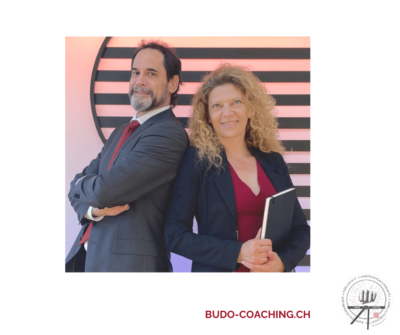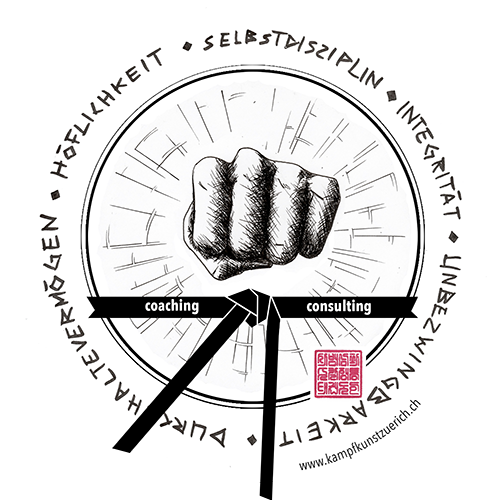Open up to your world of possibilities Do you find yourself constantly worrying about what…

Mastering Business and Life: 5 martial arts-inspired strategies to flourish
In our dynamic work environment and life’s unpredictable journey, finding strategies to navigate challenges with resilience and grace is crucial.
Five valuable lessons
Drawing wisdom from martial arts, we uncovered valuable lessons that can be applied beyond the dojo. In this article, we’ll explore five martial arts-inspired strategies—empathy, anticipation, indomitable spirit, self-control and humbleness —and how they can be applied to not just navigate but truly flourish in both business and life.
1. Empathy: creating a positive and collaborative work environment
Our environment has a major influence on our development and progress.
In martial arts, you are well advised not only to choose the right martial art style for you but also to choose the “right” master. Just like when looking for a job. What values, criteria, role models and community do I want to live and surround myself with? Remember, your environment is what will shape you: In Asian martial arts, one of the cornerstones is sharing knowledge, supporting others, and promoting each other. The idea behind this is that there is something special inside everyone that can be unlocked: but you need a key for it, for example a teacher, a master or mentor: You make the effort to work on your skills, but someone else gave you the initial spark.
When your environment supports you, there is a positive energy around that increases motivation and performance. We experience this every day in our dojo and we pass this on with all our passion.
It’s no different at work. A genuine interest in the well-being and success of colleagues creates a culture of mutual support increases productivity and innovation, besides boosting team spirit. Such an environment fosters meaningful connections and gives deeper meaning to everyone’s contribution.
2. Anticipation: being realistic about the future and its challenges
Martial artists are trained not only to react to their opponents, but also to anticipate their movements. This forward-thinking approach is a valuable skill in both business and life. Anticipation involves being realistic about the future, identifying potential challenges, and preparing accordingly.
In business, anticipation allows for strategic planning and risk management. By staying ahead of industry trends and proactively addressing potential obstacles, you position yourself and your company for sustained success. This proactive mindset is what distinguishes thriving businesses from those caught off guard by unforeseen circumstances.
On a personal level, anticipation means setting realistic goals and planning accordingly. Whether it’s financial planning, professional development, or personal growth, the ability to recognize potential challenges and work towards overcoming them is a key element of a flourishing life.
3. Indomitable spirit: Channeling negative emotions into positive action
Martial arts practitioners are trained to channel negative emotions like anger and frustration into productive energy. In business, this means turning setbacks and disappointments into opportunities for growth and innovation. Instead of succumbing to negativity, use challenges as fuel for innovation and problem-solving. The ability to transform adversity into a catalyst for positive change is a hallmark of successful leaders.
In competition, a martial artist is kicked, punched and thrown to the mat. Thanks to his trained body and mind, he can shake off the blows, maintain his composure and continue to concentrate on his own strategy.
Can we build similar resilience to ego injuries?
Absolutely. On a personal level, an indomitable spirit means committing to self-improvement. Rather than dwelling on past mistakes or setbacks, use them as steppingstones to develop yourself further without giving up or doubting your own abilities.
Start by challenging the stories you tell yourselves about your status. Is your self-esteem relying too heavily on external validation? Do you take work situations too personally? How easily do you give up?
“Our greatest glory is not never to fall, but to rise again when we fall.” - Confucius
Get up, dust yourself off, learn from it and move on.
This principle is closely related to the next.
3. Self-control: remaining focused and clear
In addition to emphasising physical skills, martial arts also trains mental strength, resulting in controlling unproductive and troubling thoughts to keep the mind focused and clear. This mental resilience is a powerful asset in both business and life.
In the business world, the ability to cope with unfavorable situations and facing challenges is a characteristic of successful leaders. This doesn’t mean ignoring problems but rather approaching them with a solution-oriented mindset. A leader who can navigate difficulties inspires trust while fostering a resilient organisational culture.
In everyday life, self-control helps maintain mental well-being. Life is filled with uncertainties and setbacks, and the ability to control negative thoughts enables you to deal with challenges with a clear mind and confidence. This mental resilience contributes to overall happiness and a sense of fulfilment.
👉💡 TIP:
To maintain self-control, try the S.T.O.P. technique. This is an acronym that, in situations of high stress, anger and fear reminds you:
1) to pause, stop,
2) to take a few deep breaths
3) to look at the situation from a more distant perspective, –observe
4) and finally move on using the newfound awareness – proceed.
This short break will allow you to get in touch with your emotions, rationalize the situation and avoid inappropriate reactions triggered by anger, stress and fear. Sometimes we have to take blows or disappointments, even if it burns. Especially then, it’s better to stay anchored in the moment for a while and accept the situation without reacting impulsively. The pain or unpleasant feeling will pass. And than, you carry on.
5. Staying humble: constantly seek to improve yourself
No matter the level of skill achieved or rank, martial artists are taught to remain humble, acknowledging that there is always more to learn and room for improvement.
This principle is particularly valuable in business, where a growth-mindset can foster a culture of openness to new ideas and continuous learning.
In a professional setting, staying humble allows for effective collaboration and teamwork. Acknowledging one’s strengths and weaknesses creates a more inclusive and supportive environment, paving the way for innovation and growth and inspiring others to strive for excellence.
At this point you might raise the question if humbleness and empathy are trait to wish for in a leadership role. What for?
Martin came for a coaching (Coaching? That is how you can help change along the way ) after his promotion to team lead: he was concerned because he felt people might not respect him if he did not always show strength. So, he had put on a show trying to be extra tough – during our coaching, he finally realized that his empathic nature was not a weakness.
Being a strong leader and being humble are not mutually exclusive. In fact, many successful leaders demonstrate that strength and humility can coexist, and this combination often contributes to a positive and effective leadership style.
Guiding with clarity rather than commanding, extending trust and respect.
Conclusion:
Integrating principles from martial arts into the areas of business and life offers a comprehensive approach to a fulfilling existence.
While work-related stress and feeling overwhelmed are common, they are not invincible enemies. If you incorporate these five strategies into your everyday life, you will find it easier to cope with the pressure. Put your own and your team’s well-being and development first and you’ll soon see productivity and satisfaction increase.
Are you looking for an external sparring partner to support you along the way ? Get in touch and learn more about our group programs or individual coaching.



